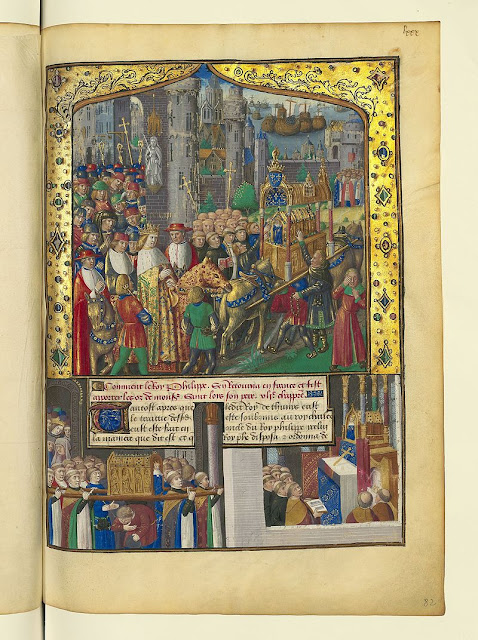In May 1279 Edward I and Eleanor of Castile, met with Philip III at Amiens in northern France. Here, in a series of amicable interviews, they settled outstanding disputes from the Treaty of Paris (1259) and discussed Edward's claim to the dual county of Ponthieu and Montreuil.
He claimed
this land in right of his consort, Eleanor, whose mother Joan had
inherited the title and land from her mother, Marie, countess of
Ponthieu. There was another claimant in the shape of Eleanor's
nephew, John of Ponthieu. Thus, the royal family of Castile, a very
long way from northern France, had a disputed claim to a lordship on
the banks of the Somme. This was indeed a transnational world and
society.
As King of France, Philip had the final say.
Relations between London and Paris were good at this time, and he was
quite prepared to let Edward have the county. First he had to do
right by John of Ponthieu, who appeared before the French court on 23
May. Instead of claiming the title and land entire, John asked the
king to grant him one-fifth of the county, while the rest went to
Edward.
Edward was not prepared to receive one part of a
subdivided lordship. That would play havoc with the administration,
and only store up trouble for the future. Fortunately there was no
real difficulty. While Philip allowed John to have his day in court,
so he could not complain of injustice, the county was granted entire
to Edward on 8 May. The disgruntled John would continue to press his
claim in subsequent years, which achieved nothing except a pile of
lawyer's bills.
Two days later, 10 May, the new count and
countess left Amiens to visit their new territory. Edward now bore a
double title, 'comes Pontivi et Monstrolli' – Count of Ponthieu and
Montreuil – as well as being King of England, Lord of Ireland and
Duke of Aquitaine. Perhaps as a sop to the disputed claim, he never
actually used the title in official letters and charters.

No comments:
Post a Comment